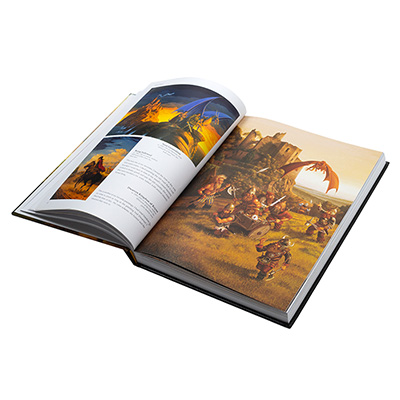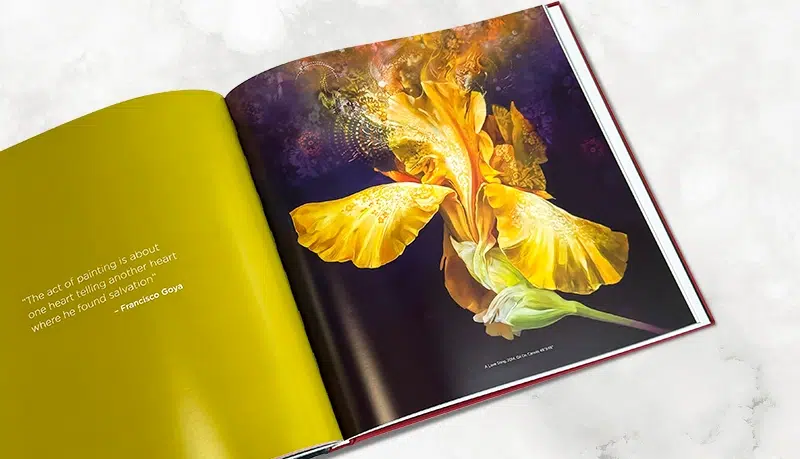Why Paper Texture Matters in Your art book Printing
Why Paper Texture Matters in Your art book Printing
Blog Article
Recognizing the Process Behind High-Quality Art Book Printing for Art Fanatics
When it comes to top quality art book printing, understanding the complexities of the process can raise your recognition for the final product. As you check out the numerous components of art book printing, you'll discover understandings that can transform your point of view on art preservation and presentation.
The Value of Paper Option in Art Book Printing
When it comes to art book printing, the option of paper can make or damage the end product. You want your artwork to beam, and the appropriate paper enhances color vibrancy and detail. Think about variables like weight, texture, and finish; these elements significantly influence exactly how visitors view your job.
As an example, a heavier stock communicates high quality and durability, while a textured finish can add depth to pictures. Smooth paper is superb for detailed reproductions, allowing fine lines and refined tones to show up crisp.
Do not ignore the paper's brightness; a brighter sheet can assist colors pop, making your art much more distinctive. You'll additionally intend to think of exactly how the paper communicates with inks and whether it can manage the printing process without deforming or bleed-through. Ultimately, selecting the right paper establishes the phase for your art, ensuring it captures the audience's focus equally as you envisioned.
Picking the Right Inks for Vivid Recreations
Choosing the right inks is equally as crucial as choosing quality paper to achieve dynamic recreations in your art book. When you're printing artwork, you desire colors that stand out and precisely represent the initial piece. Go with inks with a high pigment concentration; these often tend to create richer and more saturated shades.
You could consider making use of archival inks, which resist fading with time, ensuring your art book continues to be as striking as the day it was printed. If you're functioning with photographs or electronically created art, pigment-based inks can supply a broader color range, enhancing detail and deepness.
Don't forget the surface! Matte and shiny inks can considerably modify the appearance of your art work, so think of the appearance you're intending to achieve - art book. Inevitably, the right ink option enhances your paper option, producing a magnificent visual experience for your visitors
The Duty of Color Management in Publish Quality
Shade management plays a vital role in accomplishing high print top quality for your art book. It guarantees that the colors you see on your screen convert properly to the printed page. Without effective color management, your lively art work might appear dull or distorted, weakening your innovative vision.
Next off, make use of shade accounts customized for your printer and paper kind. These accounts lead the printer in reproducing colors accurately, reducing discrepancies in between electronic and published versions.
When you prepare your data, think about utilizing a color space like Adobe RGB or CMYK, depending on your printer's specifications. Constantly evidence your job, as well; a test print can expose any type of potential color concerns prior to the final run. By prioritizing shade monitoring, you secure the stability of your art, ensuring your audience experiences it as you planned.

Comprehending Different Binding Strategies
Achieving the excellent seek your art book goes past color monitoring; binding techniques additionally play a considerable duty in its general discussion and toughness. You have several alternatives to examine, each with its own one-of-a-kind qualities.
If you're going for an expert feeling, case binding uses a sturdy choice with a tough cover, ideal for showcasing your art work. On the other hand, best binding provides an adaptable spinal column while maintaining costs down, making it a prominent selection for softcover books.
Spiral binding enables your art book to lay level, which is fantastic for showing photos without obstruction. Saddle stitching is optimal for smaller sized pamphlets, giving a clean surface without the bulk.
Inevitably, the binding strategy you choose must show your artistic vision and how you want visitors to involve with your job. Make certain to weigh these options thoroughly to achieve the most effective end result for your project.
The Impact of Print Size and Layout on Presentation
While the choice of print size and layout might seem additional to material, they substantially affect just how your art work is regarded. The measurements of your prints can either boost or reduce the influence of your items. Larger prints can attract customers in, enabling them to appreciate elaborate details, while smaller formats might call for even more intimate involvement.

Preservation Strategies for Resilient Art Books
To ensure your art books stand the test of time, it's necessary to apply effective preservation strategies. Usage acid-free storage space boxes or protective sleeves to protect them from dust and physical damages.
When handling your books, constantly wash your hands or wear cotton gloves to stay clear of oils and dirt moving onto the web pages. Avoid flexing or creasing the backs; rather, make use of check my source book sustains when presenting them.
For included defense, think about purchasing archival-quality materials for any type of fixings or enhancements. On a regular basis check your collection for indicators of wear or damage, resolving problems without delay. By adhering to these simple approaches, you can ensure your art publications stay vibrant and available for years to come, maintaining their beauty and value for future generations.
Teaming up With Printers for Optimum Outcomes
When you're prepared to print your art book, choosing the right printer is important to attaining your vision. Clear interaction concerning your assumptions and demands will certainly assist ensure that both you and the printer get on the same page. Allow's explore how to make this cooperation as smooth and reliable as feasible.
Selecting the Right Printer

Reliable Interaction Methods
Effective communication is essential for transforming your art book vision right into truth, specifically when collaborating with printers. art book. Beginning by plainly detailing your task's objectives, consisting of style elements, favored products, and any kind of specific printing methods. Don't be reluctant to share your ideas and recommendations; this helps the printer recognize your visual
Establish normal check-ins to discuss progression and resolve any inquiries. Usage visuals, like mock-ups or samples, to convey your ideas extra successfully. Be open to comments, as printers often have important insights that can boost your job. Preserve a positive connection by being respectful and appreciative of their proficiency. This collaboration will ensure that your art book meets your expectations and radiates in its final form.
Regularly Asked Questions
What Prevail Mistakes to Prevent in Art Book Printing?
When publishing your art book, avoid usual errors like poor resolution images, inaccurate color profiles, and disregarding page layout. Do not fail to remember to proofread and ascertain information to verify your last item meets your expectations.
Exactly How Does Digital Printing Differ From Traditional Printing Techniques?
Digital printing utilizes electronic documents to produce prints straight, permitting for quicker turn-around and customization. On the other hand, typical techniques entail physical plates, which can be time-consuming find out this here and less versatile for little runs or distinct styles.
What Is the Regular Turn-around Time for Art Book Printing?
The typical turn-around time for art book printing varies, yet you can anticipate it to take anywhere from a couple of weeks to numerous months. Elements like complexity, quantity, and printing approach all influence this timeline.
Can I Print a Limited Version Art Book Financially?
You can publish a limited version art book economically by choosing economical products, enhancing print runs, and making use of digital printing options. Careful planning and budgeting will aid you accomplish my link top quality without overspending.
What Are the Ecological Factors To Consider in Art Book Printing?
When thinking about art book printing, you need to consider eco-friendly products, lasting inks, and energy-efficient processes (art book). Picking regional printers can additionally reduce your carbon footprint, making your task both stunning and environmentally accountable
Report this page